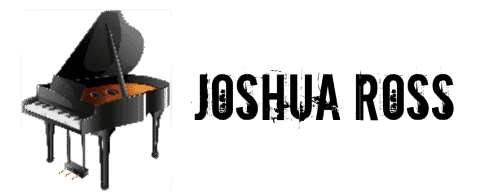As an Amazon Associate I earn from qualifying purchases.
Piano scales are undeniably important in learning and mastering the instrument. They are the backbone of technique and musical understanding. Remember those times practicing the C Major scale over and over? It wasn’t just a finger exercise—it was preparing you to navigate the keyboard and understand musical relationships.
Want to Learn Piano?Click Here

I’ve seen firsthand how scales enhance a student’s ability to grasp key signatures and improve their sense of rhythm and articulation. Scales aren’t merely sequences of notes; they are the tools with which music is built. When you play your favorite pieces, you’re often employing sequences of notes that mimic scales that you, as a beginner, may have practiced separately.
Incorporating scales into your practice can seem tedious, but the precision and skill they build are invaluable. Think of each scale as a new character in your musical storytelling; knowing them well equips you to express the music more vividly.
So, while piano scales might initially seem like a drill, they’re your stepping stones to becoming a more proficient and expressive pianist.
Fundamentals of Piano Scales

The mastery of piano scales is a cornerstone of your musical journey, providing the foundation for both technique and understanding of music theory. Delve into the essentials of scale theory, the pivotal role scales have in piano technique, and the diverse scales that will enrich your practice sessions.
Understanding Scale Theory
In music, a scale is a sequential arrangement of notes that follows a set pattern of intervals. As you explore scales, you’ll encounter terms like whole steps and half steps, which are the building blocks of scales. Each scale is defined by its unique sequence of intervals starting from a root note.
For instance, a C major scale follows a pattern of whole and half steps without any sharps or flats, making it one of the first scales often learned on the piano.
The Role of Scales in Piano Technique
Scales are much more than just a sequence of notes; they are essential for developing fingering precision, hand position, and finger strength. Regular scale practice enhances your dexterity, allowing you to play more intricate music.
Let’s take the E major scale, for example, its signature of four sharps requires careful attention to finger positioning to ensure clarity and fluency in performance.
Different Types of Scales Most Effective For Practice
There is a variety of scales that can be effective for practice, each with its own character and technical benefits:
- Major scales: Like the bright and robust C major or the sharp-rich E major, they are foundational in learning key signatures and understanding music’s structure.
- Minor scales: These include the natural minor scale like A minor, the harmonic minor scale that adds a touch of drama with a raised seventh note, and the melodic minor scale with its ascending and descending variations.
- Pentatonic scales: Both the major pentatonic scale and the minor pentatonic scale are five-note scales that are widely used in various music genres for their versatile and melodic nature.
- Blues scales: These scales add a soulful flavor to your playing, characterized by their use of flattened notes.
- Whole tone scales: Comprised entirely of whole steps, this scale has an otherworldly quality and is often utilized in modern and impressionistic music.
Practical Applications of Piano Scales
Piano scales are like the building blocks of music that you can use to elevate your playing and understanding of the piano. Let’s examine the specific benefits they offer and how they can be applied in your musical journey.
Improvisation and Composition
Scales are your toolkit for improvisation. When you comprehend the scales, you unlock the ability to craft melodies on the fly and build compelling chord progressions. For example, when playing jazz, familiarity with the blues scale can transform a simple improvisation into an evocative solo that resonates with the genre’s emotive depth.
Building Muscle Memory and Dexterity
As you practice piano scales, your fingers develop muscle memory, allowing you to navigate the keyboard with more fluidity and precision. This is crucial for executing intricate passages and can be particularly enhanced with tools like Hanon exercises or a metronome to polish your timing.
Enhancing Musical Expression
Mastery of scales directly impacts your dynamics and emotional expression. Claude Debussy, for example, exploited the whole tone scale to create music that evokes a unique, impressionistic sound quality. Understanding scales can heighten your musical expression, allowing you to convey a vast array of emotions through your execution of loud and soft passages, or the way you time your phrases.
Piano Scales in Different Music Genres
Different music genres lean on different scale types. While jazz pianists adeptly switch between major and minor scales, blues players often employ the blues scale to add that quintessential sorrowful twang. In western classical music, scales form the foundation of most compositions, aiding in learning pieces faster and setting the groundwork for harmonic exploration.
Hello & thanks for stopping by! I’m a professional concert pianist and piano instructor. In the United States, I’ve given successful performances in several places including New York, Florida, Connecticut, & New Jersey, I have also performed internationally in Italy and made my Carnegie Hall debut in 2014. I enjoy blogging about the piano, the art of performance, general music, current events and the latest in music production.
